Repatriation as a Pathway to Redress and Reconciliation
Wednesday 7 April, 17.00 - 18.30

More often than not, the museum world reimagines repatriation from a theoretical viewpoint based on the development of policy or procedure that will enable or obstruct repatriation. This can lead to a feeling of impossibility surrounding repatriation due to the obstacles and complexities the process presents.
Together with tribal representatives, experts who proactively support tribal elders with the process of repatriation and museum practitioners who have successfully engaged with international repatriations, this conversation will share how participants have navigated the many hoops of the repatriation process, as well as the new practices they have developed.
We hope our shared learnings from doing repatriation will help to shape better returns processes and new pathways that can support reconciliation, redress and healing.
Supported by TORCH Oxford.
This webinar is part of the Pitt RIvers Museum Radical Hope series. All talks will be recorded and are available to view after the event on the Radical Hope page.
Speakers:
Juma Ondeng' is a Curator for the National Museums of Kenya in western Kenya's regional Kitale Museum. He has been involved in museum training programmes in the East African region with an emphasis on collections' care, exhibitions, museum education and community outreach. He is a member of the International Inventories Programme, working on a database of Kenyan collections in museums in the global north, and supporting the curation of the ongoing Invisible Inventories Exhibition: Questioning Kenyan Collections in Western Museums.
Shannon O'Loughlin is a citizen of the Choctaw Nation of Oklahoma and the Chief Executive and attorney for the Association on American Indian Affairs - the oldest non-profit serving Indian Country. Shannon has also served Indian Country in the private sector as an attorney, leading a large national firm's Indian law practice group and bringing more than 18 years of Indian Country legal and policy work to strengthen, maintain and protect Indian nation sovereignty, self-determination and culture.
Steve Nash is Director of Anthropology and Senior Curator of Archaeology at the Denver Museum of Nature & Science, where he has worked for nearly 15 years. He conducts fieldwork and collections-based research on the ancient Mogollon archaeology of southwestern New Mexico.
Colleen Medicine (Ojibwe/Anishinaabe) has spent her entire career working within Indian Country and has held several positions within Tribal governments and non-profits. Colleen has many years of experience working in repatriation and sees no greater honour than assisting in the return of their Ancestors and their objects. Colleen now serves the Association on American Indian Affairs (AAIA) as the Program Director.
Laura Van Broekhoven is the Director of the Pitt Rivers Museum, Oxford. Laura's current research interests include decoloniality, reconciliation and redress, with a focus on the importance of collaboration, inclusivity and reflexive inquiry.
Dr Purity Kiura is a Senior Research Scientist and Director of Regional Museums Antiquities, Sites and Monuments of the National Museums of Kenya. In addition to the research and coordination of training programs in anthropology, Dr Kiura is involved with the conservation and awareness efforts of Kenya's prehistory heritage for economic investments in Kenya.
Nanette Snoep is a Dutch anthropologist and curator. She is the Director of the Rautenstrauch-Joest-Museum - Kulturen der Welt, the ethnological collection in Cologne. In February 2015, she took over the management of the Museen für Völkerkunde, Leipzig, Dresden and Herrnhut and has worked in ethnographic museums for more than 20 years.


